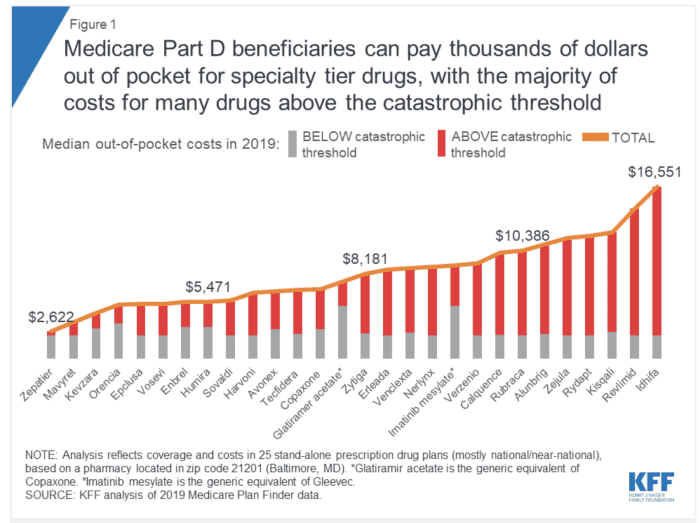This post was originally published on this site
Here are some soul-crushing numbers that millions of Americans are sadly all-too familiar with: The price of insulin more than tripled between 2009 and 2019, according to Truven, a health analytics firm.
Price hikes like this have proven deadly for some cash-strapped diabetics, who made fatal decisions to ration insulin because they couldn’t afford to take full doses of the lifesaving drug.
But good news could be in the way—I’ll get to that in a moment.
It’s an example of the effect that soaring drug prices are having on Americans, particularly seniors. As I’ve noted before, those prices, year in and year out, keep rising faster than inflation. How fast? A whopping 276.8% between 2006 and 2020 says AARP, for 65 chronic-use brand-name drugs that were on the market over that entire period.
Advocacy groups and politicians from both sides of the aisle have long squawked about this. One remedy, many have urged, is to let Medicare negotiate drug prices with drugmakers; the thinking is that the government’s clout could be leveraged to lower prices. This now appears one step closer to happening. Democrats added a measure Tuesday to President Biden’s social safety net plan that would allow the federal government to negotiate prices for medications covered by Medicare.
This is big news, yet it didn’t come up during President Biden’s news conference in Scotland on Tuesday. But here’s what the White House has said about the plan: Medicare officials would be able to negotiate prices for high-cost prescription drugs including meds that seniors get at the pharmacy counter (through Medicare Part D), and drugs that are administered in a doctor’s office (through Medicare Part B). Drugs would become eligible for price haggling once they have been on the market for a fixed number of years: 9 years for “small molecule drugs” (usually drugs you take in pill form) and 12 years for “biologics” (usually drugs you take via injection). The overall plan aims to cut costs for seniors, including holding the lid on insurance premiums.
The Biden administration claims that “the policy will establish a clearly defined negotiation process that is fair for manufacturers, and gets the biggest savings on drugs that have been on the market a long time. This discourages drug companies from abusing laws to prolong their monopolies, while encouraging investments in research and development of new cures. Drug companies that refuse to negotiate will owe an excise tax.”
The plan would ramp up over time, with Medicare negotiating up to 10 drugs per year in 2023, increasing up to 20 drugs per year. But given that there are scores of drugs on the market, this suggests that the prices for dozens of drugs might not be negotiated at all. But priority would be given to some of the most expensive drugs on the market today, including treatments for cancer and rheumatoid arthritis.
What’s the bottom line for seniors here? There are no caps today on how much seniors and people with disabilities have to pay for drugs. Millions of seniors now pay huge out of pocket sums for critical drugs, above what the government terms the “catastrophic threshold” (here’s a good explanation of what this means). The White House proposal aims to limit this cap to no more than $2,000 per year for drugs covered under Medicare Part D. This is all quite complicated, but the goal is to keep seniors from paying thousands of additional dollars for the medications they need.

Kaiser Family Foundation
As for insulin, the plan agreed to on Tuesday would cap the cost to diabetics at $35 per month. “Fixing prescription drug pricing has consistently been a top issue for Americans year after year, including the vast majority of both Democrats and Republicans who want to see a change because they simply cannot afford their medications,” says Senate Majority Leader Chuck Schumer of New York. “Today, we’ve taken a massive step forward in helping alleviate that problem.”
President Biden’s $1.75 trillion social safety spending plan, which contains the lower insulin and price negotiation provisions, remains stalled in Congress. But Biden said Tuesday in Scotland, where he was attending a global climate summit, that he remains confident that the plan will soon pass.




